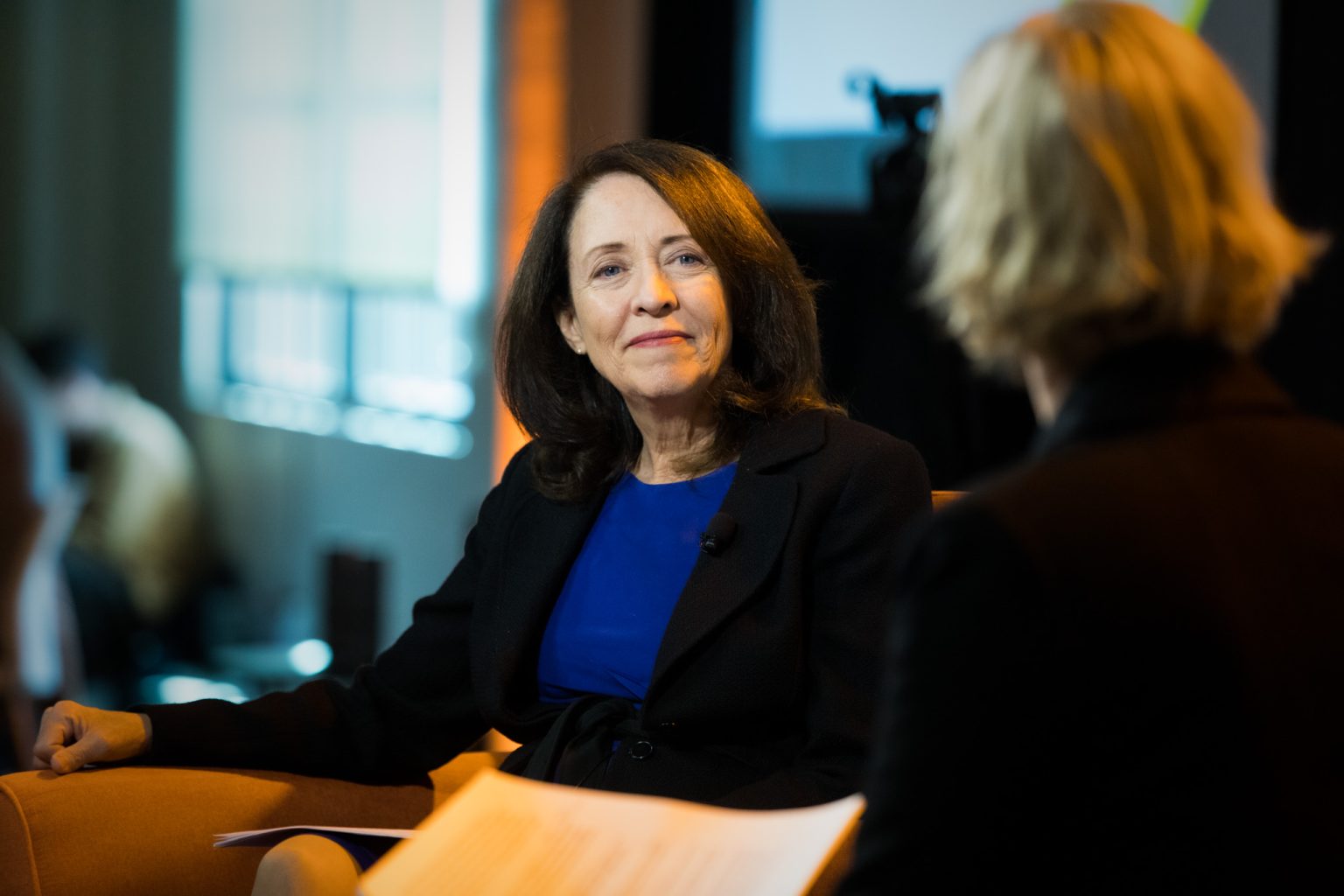Summarize this content to 2000 words in 6 paragraphs
U.S. Sen. Maria Cantwell said a statewide digital and cybersecurity literacy program “will help promote the adoption of technology and ensure that Washingtonians are protected from online threats.” (GeekWire File Photo / Dan DeLong)
A number of grants announced this week by the Washington State Dept. of Commerce and Sen. Maria Cantwell’s office total roughly $57 million and address such things as improved digital equity, high-speed internet for tribal communities, and the addition of zero-emission school buses across the state.
Advancing Washington’s Digital Equity Plan
The Dept. of Commerce announced that its Washington State Broadband Office will receive $15.98 million from the National Telecommunications and Information Administration to continue efforts to improve digital equity throughout Washington.
Along with providing increased access to high-speed internet — Gov. Jay Inslee said Washington has more than 200,000 households without broadband access — the funds will also support the creation of a Broadband Cybersecurity Literacy Program.
The state said that increasingly sophisticated cybersecurity threats make it vital that people “not only have the tools to connect but also the skills to engage with technology safely and responsibly.” The program will develop advanced cybersecurity curricula that can be incorporated into existing digital literacy training.
“Digital equity means that all people, regardless of socioeconomic status, have the tools and skills they need to succeed in the digital world,” said Aaron Wheeler, director of the Washington State Broadband Office.
High-speed internet for tribal communities
Another $32.3 million in federal grants will help five tribes in Washington deploy more high-speed internet as part of the Dept. of Commerce’s Tribal Broadband Connectivity Program.
Announced by Cantwell’s office on Monday, the funds are part of the Consolidated Appropriations Act of 2021 and the Bipartisan Infrastructure Law which Cantwell helped author. Grants are directed to tribal governments to be used for broadband deployment on tribal lands, as well as for telehealth, distance learning, broadband affordability, and digital inclusion.
Here’s the breakdown of tribal funding and projects:
Tulalip Tribes of Washington, $10.5 million: This infrastructure deployment project will provide access to high-speed internet to approximately 650 households.
Swinomish Indian Tribal Community, $8.5 million: Provides access to high-speed internet to approximately 100 households.
Makah Indian Tribe, $6.2 million: Provides access to high-speed internet to approximately 160 households.
Lower Elwha Tribal Community, $6 million: Provides access to high-speed internet to approximately 250 households.
Spokane Tribe, $1.2 million: Project aims to provide digital literacy and technology equity opportunities.
So far, more than $100 million has been awarded to tribes in Washington from the Tribal Broadband Connectivity Program.
Zero-emission school buses
Cantwell, who chairs the Senate Committee on Commerce, Science, and Transportation, also announced three grants totaling $8.4 million for zero-emission school buses in Washington state.
The funding for these grants was provided by the Environmental Protection Agency’s (EPA) Clean Heavy-Duty Vehicles Grant program, which was established by the Inflation Reduction Act (IRA). The grant program aims to replace existing internal combustion engine heavy-duty vehicles with zero-emission vehicles, while also supporting the construction of clean vehicle infrastructure.
According to the EPA, exhaust from diesel-powered buses not only contributes to air quality problems, but has negative health impacts, particularly for children.
The following organizations received funding:
Woodland Public Schools, $4.2 million: Replacing 14 diesel school buses in a district that contains multiple Justice 40 neighborhoods where air quality is exceptionally poor. These new buses will support the district’s goal of reducing nitrogen oxides, particulate matter, and greenhouse gases.
Washington State Dept. of Ecology, $3.9 million: Replacing 13 diesel school buses across four different school districts: Olympia (five); Central Kitsap (four); Bellevue (one); and Durham serving Everett (three).
Confederated Tribes of the Colville Reservation, $260,000: Replacing a Class 6 diesel refuse hauler with a zero-emission school bus.


